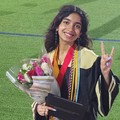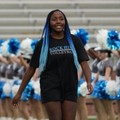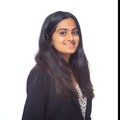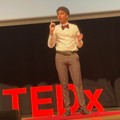Emerging Leaders in STEM Scholarship
Investing in STEM education is crucial for driving innovation, economic growth, and solving complex global challenges.
Encouraging students in their academic pursuits can inspire and empower them to become leaders in their respective fields and make a meaningful difference in the world. Ensuring that students are able to develop a strong foundation in basic sciences is critical in enabling them to build on their knowledge and become the next generation of researchers and innovators.
This scholarship seeks to provide financial assistance and motivation to students who are eager to make a positive impact in their chosen field.
Any minority high school senior or undergraduate student who is pursuing higher education in STEM may apply for this scholarship opportunity.
To apply, tell us why you’re interested in STEM, what kind of impact you intend to make, and what challenges you have overcome.
Why are you interested in this field of study, what kind of impact do you hope to make, and what adversities have you overcome so far in life?
Winners and Finalists
Winning Application

Explore All Kinds of Scholarships for All Kinds of Students
FAQ
The application deadline is Aug 29, 2026. Winners will be announced on Sep 30, 2026.
Your privacy is a top priority on the Bold.org platform, and you can find our privacy policy in full here. You may opt out of communications from Bold.org at any time, and unless we’ve first notified you and gotten your consent, you’ll never receive communication from any third parties related to personal information you give us.
Award amounts per winner are designated by the donor. Check the award amount for a detailed breakdown.
The winner will be publicly announced on Sep 30, 2026. Prior to the announcement date, we may contact finalists with additional questions about their application. We will work with donors to review all applications according to the scholarship criteria. Winners will be chosen based on the merit of their application.
Award checks will be sent to the financial aid office of the winner's academic institution or future academic institution in their name to be applied to their tuition, and in the name of their institution (depending on the school's requirements). If the award is for a qualified educational non-tuition expense, we will work with the winner directly to distribute the award and make sure it goes towards qualified expenses.
Before we award the scholarship, the winner will be required to confirm their academic enrollment status. Depending on the circumstances, verification of Student ID and/or their most recent transcript will be required.
If you have any questions about this scholarship or the Bold.org platform, just email contact@bold.org and we’ll get back to you as quickly as we can.
Yes. The terms and conditions for this scholarship can be found here.



